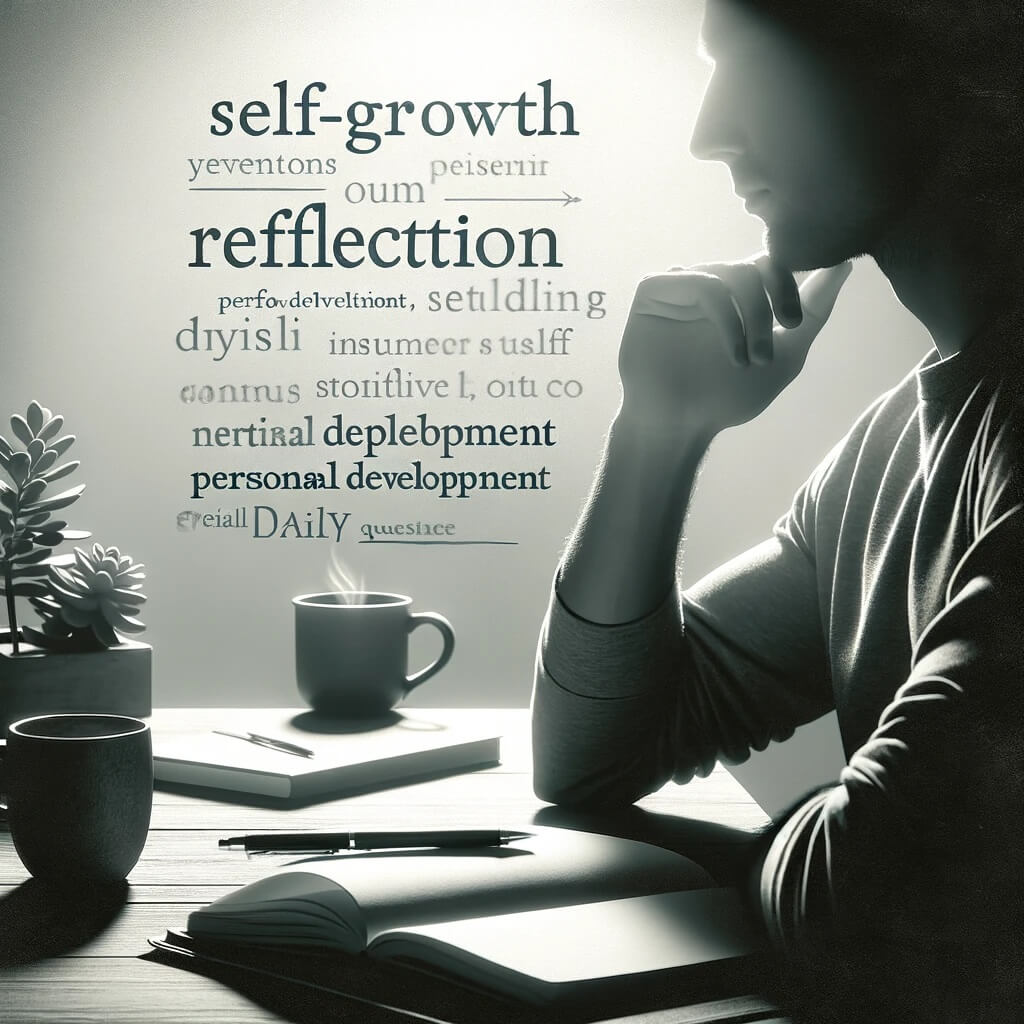
How to Overcome Self-Doubt During Personal Growth
Have you ever felt like your inner critic is holding you back just when you’re about to make progress? That little voice questioning your abilities, whispering, “Are you sure you’re good enough?” is self-doubt. We’ve all experienced it, especially when stepping outside our comfort zones. Whether starting a new job, pursuing a dream, or trying to develop a skill, self-doubt can make even the most capable person feel unsure.
The good news? Self-doubt isn’t a permanent roadblock—it’s a sign you’re growing.
This article will explore why self-doubt arises and how it impacts personal growth. More importantly, we’ll dive into practical strategies and tools to help you overcome it. By the end of this guide, you’ll have the confidence and clarity to tackle self-doubt head-on and embrace your journey with renewed energy.

What Is Self-Doubt?
Understanding Self-Doubt
Self-doubt is the nagging feeling of uncertainty about your abilities or decisions. It can show up in big moments, like giving a presentation, or in small ones, like trying a new hobby. While self-doubt can sometimes motivate you to prepare better, too much of it can hold you back.
Psychologically, self-doubt stems from fear—fear of failure, rejection, or not meeting expectations. It’s often rooted in past experiences or negative feedback that has shaped one's inner dialogue.
Self-doubt is a common yet manageable challenge during personal growth. It often arises when starting something new, fearing failure, comparing yourself to others, or striving for perfection. While self-doubt can hinder progress and amplify insecurities, it also signals growth and a desire to succeed.
Understanding its triggers and effects can help you use practical tools like journaling, mindfulness, and affirmations to build confidence. Recognizing self-doubt as a learning opportunity empowers you to move forward with resilience and purpose.
Common Triggers of Self-Doubt
Common self-doubt triggers include starting something new, fear of failure, comparison to others, and perfectionism. These situations push you out of your comfort zone, amplify insecurities, and create unrealistic pressures. Recognizing these triggers is key to managing self-doubt effectively, allowing you to focus on progress rather than perfection.
Starting Something New
Embarking on a new job, course, or challenge often brings a sense of excitement but also a wave of insecurity. Unfamiliar territory can make you question your abilities and preparedness, especially when faced with steep learning curves or high expectations. These doubts are natural as change pushes you out of your comfort zone. Acknowledging this unease is the first step. Remember, every expert was once a beginner, and growth always starts with trying something new.
Fear of Failure
The fear of failure can be paralyzing, stopping you from taking action or pursuing opportunities. It’s often fueled by thoughts of embarrassment, judgment, or disappointment if things don’t go as planned. This fear magnifies mistakes, making them seem catastrophic rather than learning experiences. To overcome it, reframe failure as a stepping stone to improvement. Every successful individual has encountered obstacles along the way—what truly counts is how you overcome those challenges and continue to move forward.
Comparison
Constant comparisons to others, especially on social media, can intensify feelings of inadequacy. Seeing curated highlights of others’ successes might make your progress feel insignificant. However, comparing yourself to someone else’s journey ignores the unique challenges and timelines that shape individual growth. Instead, focus on your progress. Celebrate your small achievements, and remind yourself that everyone’s path to success differs, with struggles often hidden.
Perfectionism
Perfectionism creates an unrealistic pressure to achieve flawless results before you even begin. This mindset can delay progress, as the fear of making mistakes keeps you stuck in preparation mode. Striving for excellence is healthy, but expecting perfection sets an unattainable standard. Overcome this by embracing imperfections as part of the process. Progress, not perfection, leads to growth. Remember, starting imperfectly is better than not starting at all.
How Self-Doubt Affects Personal Growth
Emotional and Behavioral Effects
When self-doubt takes over, it doesn’t just sit in your mind—it impacts how you feel and act.
-
Emotionally: It triggers stress, anxiety, and even self-criticism.
-
Behaviorally: You might procrastinate, avoid opportunities, or settle for less because you don’t believe you deserve better.
A Real-Life Example
Consider J.K. Rowling. Before Harry Potter became a global sensation, she faced numerous rejections from publishers. Self-doubt could have stopped her, but she kept writing. Her perseverance reminds us that doubting yourself doesn’t mean you can’t succeed—it means you care enough to want to achieve.
Steps to Overcome Self-Doubt
1. Recognize and Name Your Doubts
The first step to overcoming self-doubt is identifying it. Pay attention to the thoughts running through your mind. Are they saying, “I’m not good at this,” or “What if I fail?” Naming these doubts helps you separate them from reality.
Action Tip: Keep a journal to document moments of self-doubt. Write down the thought and ask yourself, “Is this true, or is it fear talking?”
2. Challenge Negative Beliefs
Once you recognize your doubts, challenge them. Self-doubt thrives on untested assumptions. For example, if you think, “I’ll fail this presentation,” ask yourself:
-
What evidence do I have for this thought?
-
Have I prepared?
-
What’s the worst that can happen if I make a mistake?
By reframing your thoughts, you take away the power of negativity.
Example: Instead of “I’m not good at public speaking,” say, “I’m learning to improve my speaking skills, and this is a chance to practice.”
3. Build Emotional Resilience
Emotional resilience (ER) is the ability to bounce back from setbacks. It doesn’t mean ignoring challenges but handling them without letting them derail your growth.
Practical Tips:
-
Practice Self-Compassion: Treat yourself with kindness when you fail, just as you would a friend.
-
Set Realistic Goals: Break goals into smaller, manageable steps to avoid feeling overwhelmed.
4. Cultivate a Growth Mindset
The growth mindset, a concept introduced by psychologist Carol Dweck, centers on the idea that intelligence and abilities can grow through dedication and effort. It enables one to approach challenges as opportunities to learn and grow rather than threats to one's self-esteem.
How to Apply It:
-
Replace “I can’t do this” with “I can’t do this yet.”
-
Celebrate progress, not just results.
Practical Tools for Building Confidence
Journaling
Journaling is a powerful tool to process your thoughts and build self-awareness. Use prompts like:
-
“What am I proud of today?”
-
“What did I learn from a recent challenge?”
Over time, reflecting on your growth will help you see how far you’ve come.
Mindfulness and Meditation
Mindfulness helps you stay present and reduce overthinking. Meditation can calm the mental chatter of self-doubt and bring clarity.
Beginner-Friendly Practice:
-
Sit comfortably and focus on your breath.
-
When your mind wanders to self-doubt, gently bring it back to your breath.
-
Apps like Headspace and Calm can guide you if you’re new to meditation.
Positive Affirmations
Affirmations are statements that counteract negative thoughts. They rewire your brain to focus on strengths rather than weaknesses.
Examples of Affirmations:
-
“I am capable of handling challenges.”
-
“I am growing and improving every day.”
Write your affirmations where you’ll see them daily—on your mirror, desk, or phone.
Expert Insights and Data
What Research Says About Self-Doubt
-
A LinkedIn study found that 60% of millennials report self-doubt affecting their career choices.
-
Women are more likely to experience impostor syndrome, especially in male-dominated fields (Harvard Business Review).
Psychological Theories
-
Growth Mindset: Facing challenges as opportunities to grow and improve.
-
Cognitive Behavioral Therapy (CBT): A method to reframe negative thoughts into positive, actionable beliefs.
FAQs
Why do I feel self-doubt during personal growth?
Self-doubt arises because growth pushes you out of your comfort zone, triggering fears of failure or inadequacy.
Can self-doubt ever be helpful?
Yes, a little self-doubt can motivate you to prepare and improve. The key is not letting it paralyze you.
What’s the quickest way to boost confidence?
Celebrate small wins. Acknowledging progress builds momentum and reinforces positive beliefs.
How do I silence my inner critic?
Use mindfulness to recognize negative thoughts and affirmations and replace them with positive ones.
Is self-doubt permanent?
No, self-doubt is a mindset that can be managed and transformed with practice.
Conclusion
Self-doubt is normal for personal growth but doesn’t have to control you. Recognizing your doubts, challenging them, and building emotional resilience can turn self-doubt into a stepping stone to success. Remember, every successful individual you admire has faced self-doubt at some point—they didn’t let it stop them, and neither should you.
Final Thought:
Growth isn’t about being fearless—it’s about moving forward despite your fears. The next time self-doubt whispers in your ear, remind yourself, “I am growing, and that’s worth the effort.”
Personal Development




